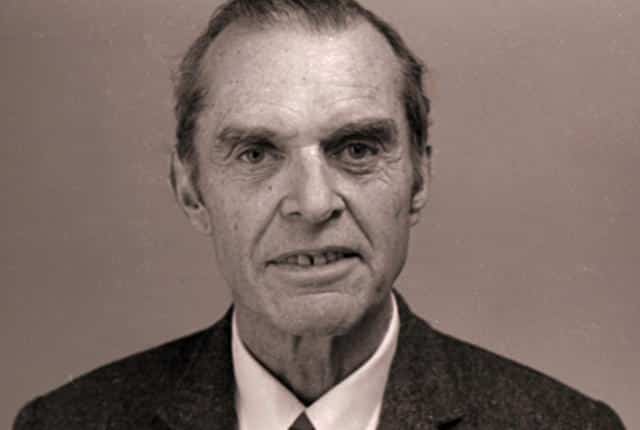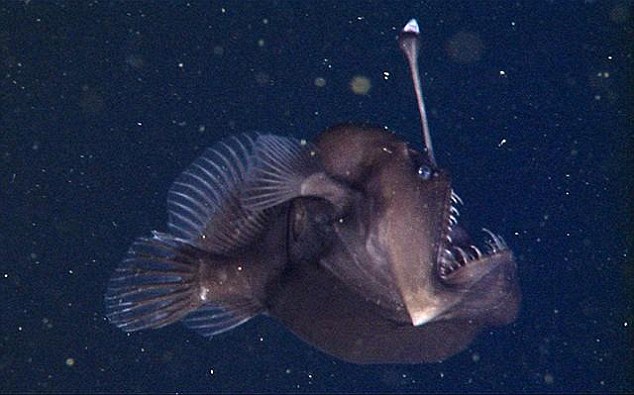Meet the Real James Bond
On January 4, 1900, a child was born in Philadelphia. His name was Bond. James Bond. He would not grow up to be a globe-trotting playboy spy like the other James Bond you’ve probably heard of. Instead, he became an ornithologist, and lived a fairly quiet, normal life—until someone borrowed his name.
Bond lived in New Hampshire and England while growing up. After graduating from Cambridge, Bond returned to the U.S. to work as a banker, but his childhood interests in science and natural history spurred him to quit soon after and join an expedition to the Amazon to collect biological specimens for Philadelphia’s Academy of Natural Sciences.
After that, and with no formal training in the field, he started working as an ornithologist at the Academy. Working at the museum, he became an authority on the bird species of the Caribbean, and his 1936 book, Birds of the West Indies, was considered the definitive guide to the region’s birds at the time.
That was the book which catapulted Bond, or at least his name, to international fame.

In 1961, Bond was reading a London newspaper’s review of the latest edition of his book and found eyebrow-raising references to handguns and other elements of a life that sounded very unlike his. He and his wife Mary quickly learned that another James Bond was the hero of a series of novels by Ian Fleming, which were popular in the U.K. Mary wrote to Fleming to jokingly chastise him for stealing her husband’s name for his “rascal” character.
Fleming replied to explain himself: He was a birdwatcher and when he was living in Jamaica beginning work on his first spy novel, Birds of the West Indies was one of his bird “bibles.” He wanted his main character to have an ordinary name, and when he was trying to drum one up, he remembered the author of the book he turned to so often. “It struck me that this name, brief, unromantic and yet very masculine, was just what I needed and so James Bond II was born,” he wrote to Mary. (He later called “James Bond” the “dullest name I’ve ever heard.”)
He told her that he understood if they were angry at the theft of Bond’s name, and suggested a trade. “In return I can only offer your James Bond unlimited use of the name Ian Fleming for any purpose he may think fit,” he wrote. “Perhaps one day he will discover some particularly horrible species of bird which he would like to christen in an insulting fashion.”
He also invited the Bonds to his home in Jamaica, which they took him up on a few years later. During the Bonds’ visit, Fleming gave James a copy of his latest novel, You Only Live Twice, inscribed with the message “To the real James Bond from the thief of his identity.”
For the next few decades, until his death at the age of 89, Bond’s famous namesake caused him a few minor annoyances. Once, he was supposedly stopped at the airport because officials thought his passport was a fake, and the occasional bank teller would likewise think the same of his checks and refuse to cash them. Young women would often prank call the Bond house late at night asking to speak to 007.
Fill in the gaps after reading the text and see how much you remember.
In his childhood James Bond was interested in ________________ (1) but his first job was in a ________________ (2). Later, he travelled to the Amazon in order to ________________ (3). He became a real expert of ________________ (4). His name became famous because he wrote a book ________________ (5). His name was borrowed by Ian Fleming for his spy novels because he wanted a name that was ________________ (6) and Fleming knew James Bond’s name because he was also ________________ (7). In exchange for the theft of his name, Fleming offered Boyd that he could ________________ (8) for any purpose and he also ________________ (9) and gave him ________________ (10). James Bond had problems because of his name at ________________ (11), in ________________ (12) and when young women ________________ (13).
1. science and natural history
2. bank
3. collect biological specimens
4. the bird species of the Caribbean
5. about birds in 1936
6. brief, unromantic and masculine
7. a birdwatcher
8. also use his name
9. invited the Bonds to his home in Jamaica
10. a copy of his latest novel
11. airports
12. banks
13. phoned him at night
Vocabulary
globe-trotting | világutazó |
spy | kém |
ornithologist | ornitológus, a madártan tudósa |
to spur | ösztönözni, sarkallni valamire |
specimen | példány |
authority | szaktekintély |
the definitive guide | alapkönyvnek számító útmutató |
to catapult | bedobni, berobbantani |
fame | hírnév |
eyebrow-raising | meghökkentő |
to chastise | szidni, ostorozni |
rascal | gazember, csirkefogó |
birdwatcher | madarakat kedvtelésből megfigyelő ember |
to drum sg up | kitalálni, kiötölni |
masculine | férfias |
theft | lopás, tolvajlás |
in return | cserébe, viszonzásul |
a trade | csereüzlet |
unlimited | határtalan, korlátozás nélküli |
to christen | elkeresztelni, elnevezni |
in an insulting fashion | sértő módon |
to take sy up on sg | szaván fogni |
to inscribe | dedikálni |
namesake | névrokon |
annoyance | bosszantás, bosszantó eset |
fake | csaló, hamisítvány |
prank | csíny |
to prank call | telefonbetyárkodni |





